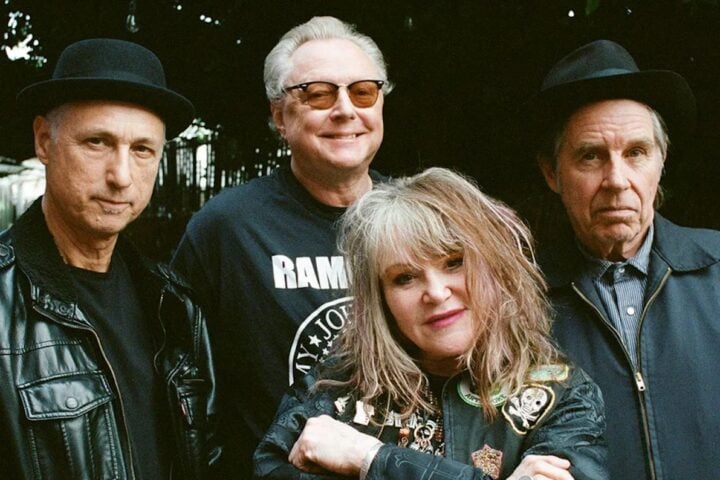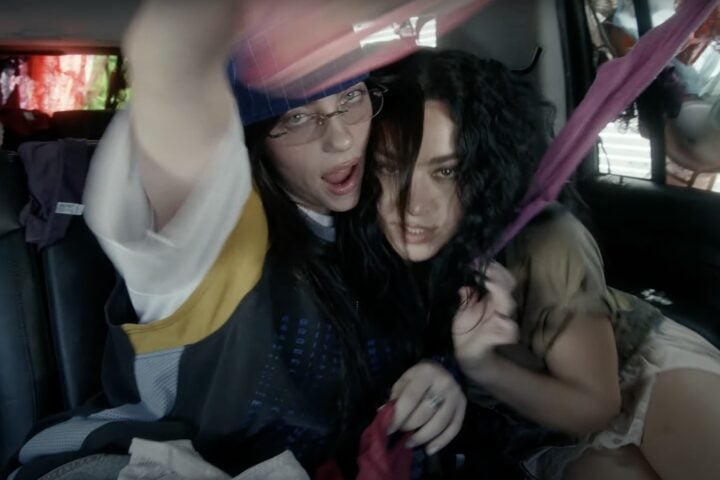Atlanta DJ/producer Porter Robinson is no stranger to creative reinvention, having ventured from emo EDM into more vocal-centric songs on 2021’s introspective Nurture, which explored his relationship with himself, his art, and the natural world. That album seems to have given Robinson the confidence to reimagine himself as a popstar on Smile :D, an album he claims was originally intended as a “nonstop party – NO sincerity, ALL fun.”
Like Charli XCX’s Brat, though, Smile :D is more than just a fun dance-pop album. The playful opening track, “Knock Yourself Out XD,” sees Robinson blurring the boundaries between himself and his public image. Leaning into his popstar persona, he drops one absurd bar after another, from “Wouldn’t know how to brush my teeth/Without asking my team” to “Don’t know my schedule on the fifth/Bitch, I’m Taylor Swift.” On the chorus, he drops the pretense, admitting, “I’m everything you talk about/Why should you keep letting yourself be let down?”
Addressing both his doubters and believers, Robinson flips the burden of expectations onto the listener, essentially saying, “If you’re confused about what it is I’m doing, that’s on you.” By painting himself as a vapid but self-aware pop idol, Robinson offers a commentary on a genre often derided as superficial, while using the sounds of that genre to validate his reinvention. A cynic might view pop music as pandering to the masses, but Robinson sees it as a rebellion.
On the electro-pop “Cheerleader,” Robinson dives even deeper into the often toxic parasocial relationships that can arise between artists and their fans. For most of the track, the titular cheerleader is portrayed as a fan who feels ownership over Robinson, who cleverly complicates the narrative when he reveals that, despite his frustrations, he needs his fans just as much as they need him: “Oh, my cheerleader/Thought she needed me/But I need her.”
Robinson turns his gaze to his own creative team on “Russian Roulette,” grappling with the pressures to succeed on behalf of all the people whose livelihoods depend on him. To Robinson, making music is a risky game, where every release will either make you or break you. He plays this game both figuratively and literally, mulling over not just career suicide, but literally ending his own life. At the end of the song, which finds him cautiously optimistic, he delivers another meta-commentary on pop music, sending up the form itself and justifying his use of its basic conventions: “Clichés like this are beautiful…Take, for example, this chord progression/It only became taboo because it was too powerful.”
A Lil Wayne interview, in which the rapper explains the symbiotic relationship between his success and his addiction, is sampled throughout “Year of the Cup.” Like Wayne, Robinson reflects on the personal flaws that, in a way, drove his success. People-pleasing, he says, might be his biggest flaw—a dangerous trait for someone whose professional fate hinges on public approval: “I guess that screaming at my audience works and everyone likes it/I dreamed of cutting my Achilles’ heel: wanting people to like me.” Eventually, he arrives somewhere near self-acceptance: “I hate this version of me that was safe and sanitized thoroughly.”
While Robinson forgives himself on “Easier to Love You,” he also makes peace with his fans on the tender, intimate closing track, “Everything to Me.” For all his anxieties about fame and complaints about fans, he finally admits that he loves them both: “I shouldn’t say I love you, I don’t know your name/But I just say it anyway ’cause it feels the same.” Ironically, in trying to make “fun” pop music, Robinson wound up making the sincerest album of his career.
Since 2001, we've brought you uncompromising, candid takes on the world of film, music, television, video games, theater, and more. Independently owned and operated publications like Slant have been hit hard in recent years, but we’re committed to keeping our content free and accessible—meaning no paywalls or fees.
If you like what we do, please consider subscribing to our Patreon or making a donation.




